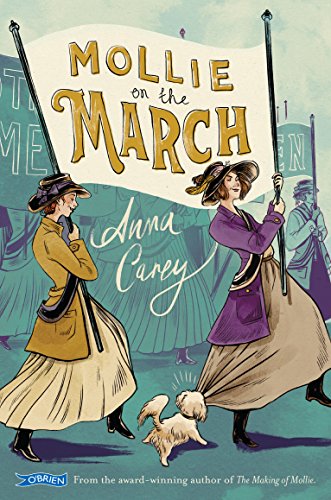Molly on the March
Dublin, 1912. Mollie Carberry, age fourteen, is a secret suffragette and longs to do something serious for the cause. The imminent arrival of Prime Minister Asquith from London is the perfect opportunity. Mollie and her friend Nora have several ideas up their sleeve: could they storm the stage on the Theatre Royal during Mr Asquith’s visit waving a banner proclaiming ‘Votes for Women’, for example?
If only they could persuade Mollie’s older sister, Phyllis—a suffragette herself—to help. But she thinks they’re too young. Mollie’s brother Harry strongly believes women are the inferior sex. And Nora’s awful cousin, Grace, is staying—which means sharing a room—and she would be bound to tell on them. Nobody will take the two girls seriously.
I really enjoyed this book. The novel is firmly anchored in a realistic time and place, with its own, very different, attitudes to class and gender. In Dublin in 1912, the battle for Home Rule was also on the agenda; male hostility to women giving speeches supporting female suffrage was vociferous and more; women were seriously beaten up for protesting peacefully.
Mollie must take on board that the family maid, Maggie, may be sympathetic, but it’s more than her job is worth to show it openly. She could be sacked. If they suspected Phyllis’s suffragette sympathies, Mr and Mrs Carberry could stop her from going to college; and Mollie herself could be sent away to boarding school. Her parents’ aspirations for Phyllis and Mollie, as girls, are far lower than for their son.
Mollie on the March takes the form of Mollie’s letters to her friend Frances who is on holiday. This allows us to follow Mollie’s adventures without spilling the beans about what happens. I couldn’t put it down. Girls of 11 plus should love it.










